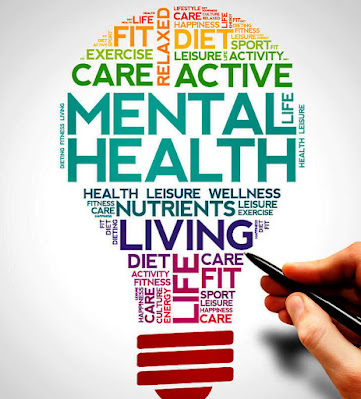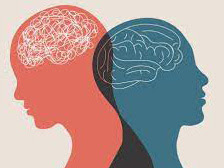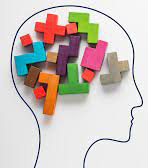Mental Health Problems
Mental illness is a serious problem affecting millions of people worldwide, with the most common being referred to as mental health problems. Mental illness is treatable but it requires specialist support. To treat an illness, the first step is to identify it is there, then works out what problems it could cause. For example, if you suffer from PTSD, your doctor will need to know whether any specific injuries or memories that might trigger this condition come into play. They will also need to find out how severe or long-lasting the condition can be.
Causes of Mental Health Disease
Mental Illnesses have many causes. Some people are genetically predisposed to a neuro-psychological disorder like autism, Alzheimer’s disease, Tourette's syndrome, or substance misuse/abuse. Other factors which may contribute may include abuse in childhood, chronic pain, brain fog, alcoholism, smoking, high blood pressure, lack of exercise, sleeping disorders, food contamination, poor nutrition, being overweight, or having diabetes. Many other factors contribute to the development of mental illnesses, including The number one drug which helps to improve mental health is anti-psychotic drugs (like antipsychotics and anti-anxiety drugs), this makes life easier for those
suffering from mental illnesses. They help to relieve symptoms, such as aggression and fear of social situations and medication is essential as there can be multiple symptoms of a mental illness, some physical health problems can be severe enough to affect the entire body, which leads to weight gain, weight loss or abnormal weight gain which in turn affects someone’s ability to sleep, and also lowers inhibitions. It is important to remember that there are no quick fixes for mental illnesses, however, some people can manage them by getting themselves checked out by their GP or a mental health nurse.
Mental Health Care & Cure
One of how someone can improve their mental health is to get them involved in activities that give them pleasure, both physically and mentally. Activities that allow for active involvement with others, include swimming, running, walking, playing sports, or games. They help to burn off the energy that would otherwise be spent on negative thoughts and feelings, which reduces stress levels. You can build up confidence through regular events such as team sports, dance, cooking, gardening, arts and crafts and even taking part in hobbies such as knitting, reading, and watching TV. Being around others who also suffer from mental illness could encourage them to try different therapies and treatments; this is particularly helpful when you’re not sure which one is
best for you or when in doubt, a professional mental health worker can guide you and make the right choice. Another way you can build confidence and self-esteem when you have a mental illness is by getting good grades, doing well, and having positive relationships.
How to live a better life
Many people who suffer from mental health issues can benefit from certain kinds of therapy; these are called psychosocial interventions or SIs, they work by encouraging the sufferer to talk about a range of topics such as love and pain, self-esteem, death and dying, grief and bereavements and also about mental health and feeling understood and heard. Psychotherapy works because the therapist encourages the patient to share their experiences and listen carefully while engaging in active conversation and encouraging them to speak about their feelings and thought processes. There are various forms of psychotherapy, which work differently depending on the individual. These include cognitive-behavioral therapy, dialectical behavior therapy, interpersonal therapy, experiential therapy, hypnotherapy, and psychoanalysis therapy, the main aim of which is to help you learn more about yourself so that you can gain a clearer idea of why you behave the way you do and how you cope with the environment around you.
Is medication enough for mental health?
A common misconception people who suffer from mental illnesses have is that medication is always the answer, sometimes it is, but these medications only provide short-term relief, rather than longer term help, rather than treating the underlying cause, such as addiction, alcohol abuse, and personality disorders. This isn't always true as these types of drugs can have dangerous side effects, sometimes affecting your liver, and also causing drowsiness, tiredness, nausea, vomiting, and sometimes death if used incorrectly, causing panic attacks and anxiety. In addition to these potential dangers, a lot of these medications do cause side effects for the rest of your
body as well, such as dry skin and brittle bones and muscles. So, although it might appear at first that the answer to your mental illness lies in medication, this isn't always the case, if you can afford it, and as long as you take your medication as prescribed, but as time goes on, and you stop taking them due to side effects and complications, they will eventually become less of a concern and become something you may notice. Your state or local authority may put you under stricter rules and laws to ensure that you follow them which can add financial hardship.
There are many reasons why people who struggle with mental illnesses should seek treatment that will help them to not simply improve their mental health but to live a full and satisfying life. There is evidence for using medication to alleviate symptoms and/or reduce the risk of suicide, which can lead to individuals becoming reliant on medication to continue living. However, a recent study by JAMA Psychiatry found that more than 90% of patients who had mental illness and received a pharmacologic treatment for their condition were satisfied with the results, and 95% of respondents preferred the
medications for the improvement they experienced. When taking prescription medication to control mood, anger, and personality, I must say that this is certainly a great thing for people who struggle with mental diseases, but we also need to remember that these drugs aren't permanent, as they do have side effects, as well as side effects which in return can cause a relapse to occur. Although medications are extremely effective in reducing symptoms and the risk of relapse, it is still crucial to remember that just because a person doesn't have symptoms all of the time doesn't mean that they have got everything wrong all the time. A lot of the time mental illness is just a sign of something much bigger going on in your life with other conditions, it is always really important to tell your friends, family, and loved ones that you aren't okay, or to get out of the house and try and leave the house.
Conclusion
There are many causes for mental illness, but to treat it, the first step is to find out it is there, then work out what problems your mental illness could cause. Oftentimes people are scared to discuss their condition and/or think it will affect others. Not that it should. Talking about your mental illness will help others to understand and appreciate the difference between your illness and normal mental health problems.












0 Comments